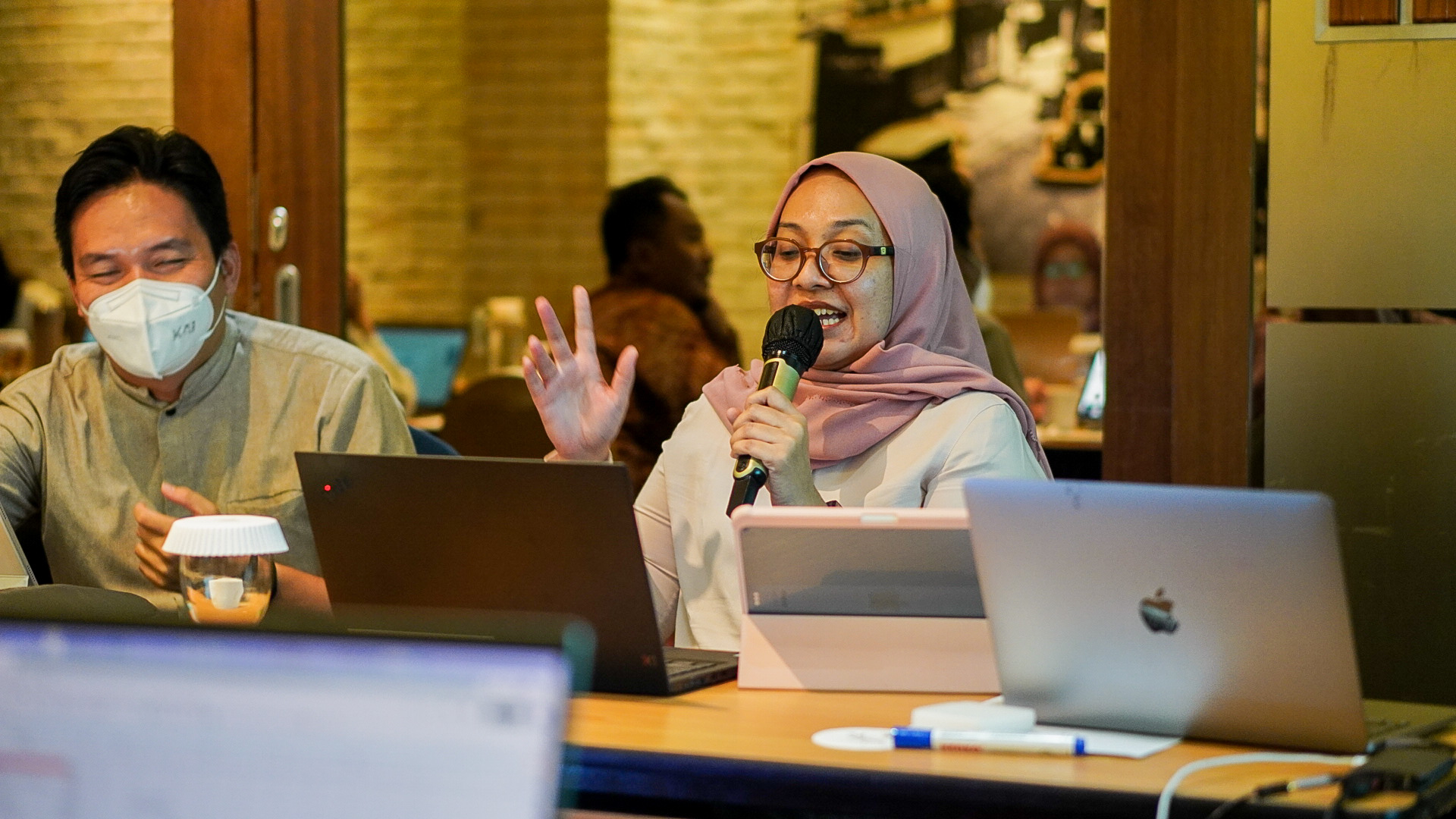Jakarta – Mining is an industry that plays an essential role in a country’s economy. Several things must be understood in this industry before mining activities, such as contracts and licenses. To explore this, Publish What You Pay (PWYP) Indonesia invited Giri Ahmad Taufik, Researcher at the Center for Law and Policy Studies (PSHK) and Lecturer at the Indonesian Jentera College of Law, and Rani Febrianti, Mind ID representative, as speakers at the PWYP Knowledge Forum (PKF) with the topic “Getting to Know Mining Contracts and Permits” on November 14, 2022, in Central Jakarta.
Rani revealed that, in general, mining contracts and licenses are essential for mining companies and the government in regulating and ensuring that mining activities are carried out correctly and by applicable laws. Therefore, companies and governments must understand these two things well and work together to ensure the mining industry’s sustainability.
Furthermore, Rani conveyed the development of mineral and coal mining regulations from 1967-2020. The purpose of the formation of the Minerba Mining Law is for good quality of life, driving economic growth, and as a sustainable resource/foundation, as based on Article 33 paragraph (3) of the 1945 Constitution (UUD), where natural resources are used for the greatest prosperity of the people. Rani also explained the forms of mineral and coal mining licenses and contracts in Indonesia, namely Contract of Work (KK), Coal Mining Concession Work Agreement (PKP2B), Mining Business License (IUP), Special Mining Business License (IUPK), and IUPK) as an extension of KK and PKP2B.
Meanwhile, Giri conveyed the theme of the Extractive Industries Transparency Initiatives (EITI) EITI Requirement 2.4 concerning Disclosure of Permits / Contracts, where Indonesia, as one of the EITI implementing countries, is required to publish contract and permit documents. Giri said that the information contained in extractive industry contracts and permits is not exempt as stipulated in Article 17 of the Law on Public Information Disclosure (UU KIP). However, some information in extractive industry license contracts may pose a “non-exempt risk” or sensitive information. Therefore, access control can be applied to certain information, such as: opened upon request, opened with the principle of for your eyes only, and the information applicant signs a statement form not to use it for other than its intended purpose.
Giri added that there are benefits in the disclosure of Extractive Industry Permits/Contracts for the government and the community, such as providing information about potential impacts on the lives of people with impacts and providing space for citizens and communities to play their supervisory role. Even so, there are still some challenges obtained in the Openness of Contracts / Permits, namely: The difference in position between the Supreme Court (MA), the Central Information Commission (KIP), and the lower courts regarding the disclosure of contracts/permits, the Ministry of Energy and Mineral Resources’ consequence testing sheet still states that contract documents are accordingly closed, and there is anxiety from business behavior regarding the impact that may arise from the disclosure of Contracts / Permits.
PKF (PWYP Knowledge Forum) is a discussion and knowledge-sharing forum organized regularly by the PWYP Indonesia coalition to increase understanding and capacity and develop a public discourse on current issues, topics, and policies that are in the spotlight related to Indonesia’s EITI issues.
Author: Raudatul Jannah
Reviewer: Aryanto Nugroho
